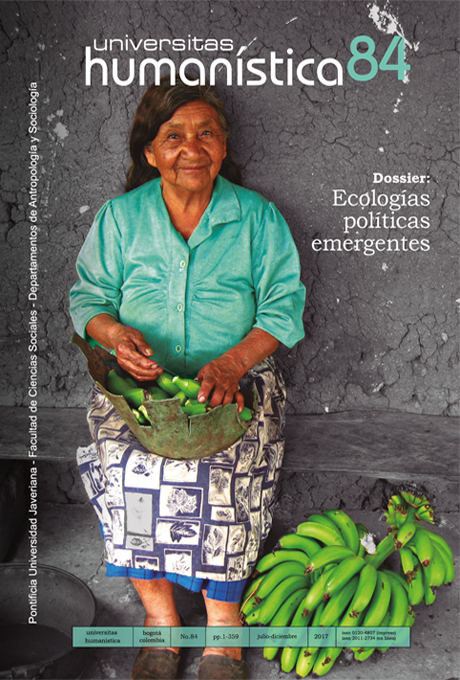Abstract
Aerial fumigation with glyphosate was a key component in the US-Colombia shared anti-drug policy until 2015. This paper reveals an ethnographic follow-up of complaints made by farmers from Putumayo, who seek reparation after the aereal spraying of their legal agroforestry fields. It shows how the evidence around these wars zones —seedbeds, food crops, GPS coordinates, and bureaucratic documents— gives account of glyphosate’s violent and toxic traces. In the face of a systematic governmental rejection of their complaints, some farmers have sought to transform the chemically-altered ecologies of their territories through various practices. These daily acts of justice are restorative practices that produce probative ecologies, which in turn assert the government’s responsibility, while feeling-enacting alternative forms of justice.

This journal provides immediate open access to its content on the principle that making research freely available to the public, encourages greater global exchange of knowledge.
The journal Universitas Humanística is registered under a Creative Commons Attribution 4.0 International Public License. Thus, this work may be reproduced, distributed, and publicly shared in digital format, as long as the names of the authors and Pontificia Universidad Javeriana are acknowledged. Others are allowed to quote, adapt, transform, auto-archive, republish, and create based on this material, for any purpose (even commercial ones), provided the authorship is duly acknowledged, a link to the original work is provided, and it is specified if changes have been made. Pontificia Universidad Javeriana does not hold the rights of published works and the authors are solely responsible for the contents of their works; they keep the moral, intellectual, privacy, and publicity rights.
Approving the intervention of the work (review, copy-editing, translation, layout) and the following outreach, are granted through an use license and not through an assignment of rights. This means the journal and Pontificia Universidad Javeriana cannot be held responsible for any ethical malpractice by the authors. As a consequence of the protection granted by the use license, the journal is not required to publish recantations or modify information already published, unless the errata stems from the editorial management process. Publishing contents in this journal does not generate royalties for contributors.


